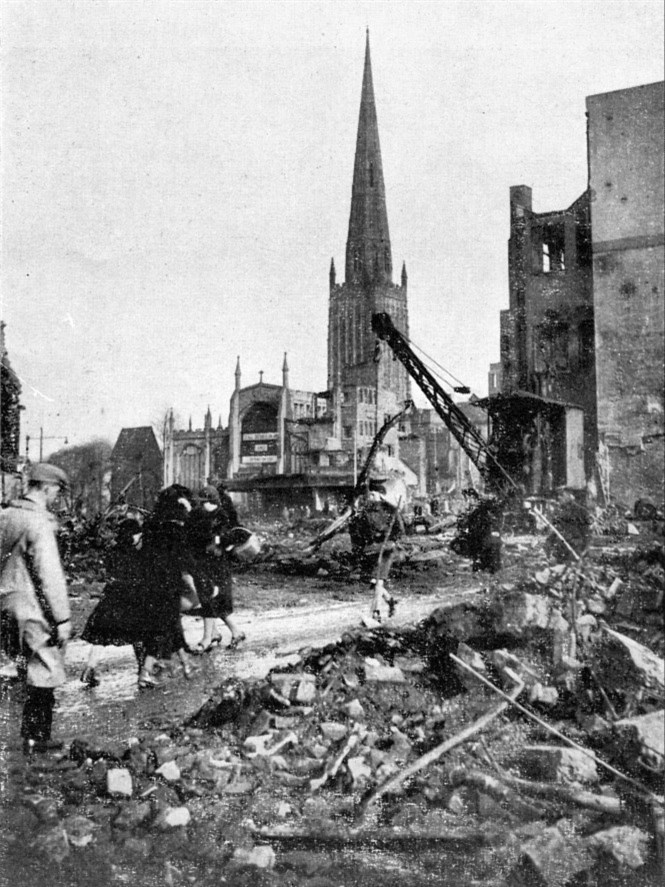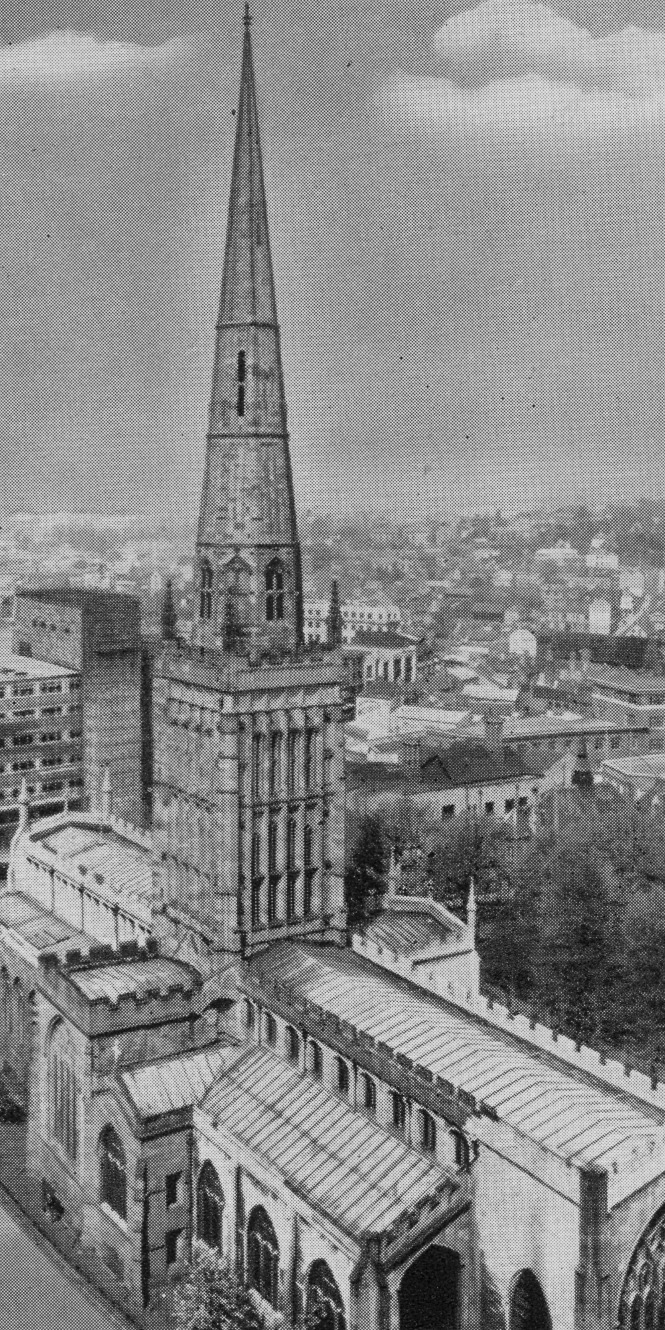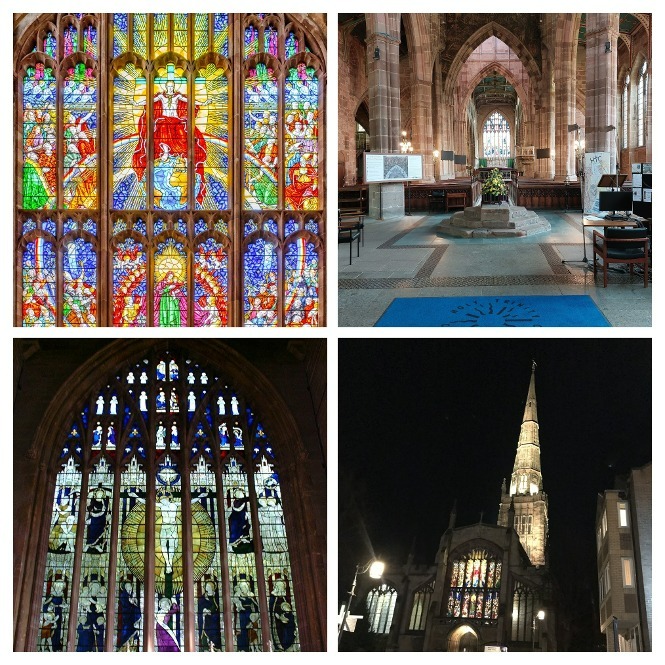Holy Trinity and the Blitz
It was little surprise that Coventry was a target for the Germans during World War II.
With a long history of manufacturing, the city was an obvious place for the production of military supplies, and particularly armaments. By the time war was officially declared in 1939, the city and its people were already making a huge contribution to the war effort.

However, in spite of previous raids in the city and the extensive bombings in London, no one was prepared for the size and horror of the attack that Coventry experienced on 14th November 1940.
During the 11-hour raid, mixtures of high explosives, incendiaries, oil bombs and landmines were dropped. The fires and explosions proved too many and too fierce and, in spite of the best efforts of many firefighters and wardens, the ancient city centre, which had not altered a great deal since medieval times, was almost totally destroyed. Worse still, by the end of the raid over 500 people had died and more than a thousand were injured.

That Holy Trinity survived, when most buildings in the city centre, including the cathedral, were destroyed, is largely due to the amazing efforts, preparation and bravery of Revd Graham Clitheroe, vicar of Holy Trinity at the time. He, along with two or three others, including his curate and one of his sons, defended the church building from incendiaries and explosive devices all night. They had been sleeping in the North Porch to allow them to keep watch during previous raids and Revd Clitheroe had bought hydrants and ladders which they used to stop fires taking hold. On the night of 14th November, they spent the whole night extinguishing fires around the building and even pushing bombs off the church roof to stop further damage. They also took in exhausted fire crews and let them rest in the North Porch.

Revd Clitheroe later described how heart breaking it was to see the cathedral and other buildings destroyed but also how he knew he could not leave Holy Trinity.
Thanks to this amazing and faithful team, Holy Trinity’s ancient buildings survived. Revd Clitheroe knew what a powerful symbol the church still standing was to a traumatised city and he hung huge signs on the church, stating that “It all depends on us and we depend on God”. Holy Trinity also went on to host the cathedral congregation, Revd Clitheroe sharing sermons with Provost Howard, until 1945.

Holy Trinity was not untouched by the Blitz – it lost its great East and West windows, which went on to be replaced. The new East window (or “Brides” window) was paid for by couples who married in the church during the 1940s and 50s.
Despite this damage, Holy Trinity’s overall survival has made it an enduring symbol of the connection between Coventry’s long history and its rebirth after the Blitz, as well as a sign of God’s love and faithfulness continuing in the city, even at the most difficult of times.
If you are interested in reading more about Holy Trinity in the Blitz, Revd Clitheroe’s account, Coventry Under Fire, is available from the church welcome desk for £3.50.